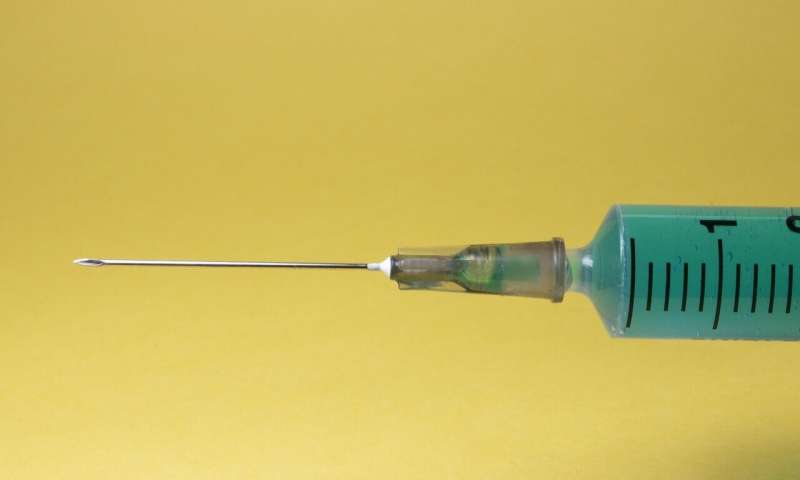
Hopes over COVID-19 vaccines have given a boost to virus-weary citizens across the globe in recent days, but the disease remains rampant and world leaders are urging people to be patient.
Governments have scaled up preparations for any vaccine, with the EU on Tuesday announcing a sixth contract to reserve doses—this time for up to 160 million from US giant Moderna.
“Every member state will receive it at the same time on a pro rata basis,” European Commission president Ursula von der Leyen said.
Even once a vaccine becomes available, any return to normality for a global economy ravaged by the pandemic seems a long way off.
The boss of Australia’s Qantas also on Tuesday said proof of vaccination will likely become the only way people will be allowed to fly.
Aviation has been particularly hard-hit, with the global industry body IATA estimating that airline revenue this year will plunge 60 percent.
Easing rules for Christmas
Despite the vaccine optimism, the world is still engulfed in the unprecedented health crisis which has infected almost 58.9 million people and left nearly 1.4 million dead.
But an easing in infection rates in parts of Europe—still the worst-affected region in the world—has led some countries to start announcing a cautious easing of restrictions.
French President Emmanuel Macron is expected to do so later on Tuesday when he addresses the nation—currently under lockdown.
Germany’s 16 states have also agreed to loosen limits on social contact over Christmas, according to a draft deal seen by AFP.
State leaders agreed to cap gatherings to 10 people over the December 23 to January 1 holiday—double the limit for the rest of December.
The measures mark a compromise on the politically charged issue for Europe’s largest economy, where some less-affected regions had called for lighter restrictions.
German business confidence fell for the second month in a row after five months of increases, according to a closely-watched survey.
The Ifo institute’s monthly barometer slid to 90.7 points from 92.5 points in October.
“The second wave of coronavirus has interrupted Germany’s economic recovery,” Ifo president Clemens Fuest said in a statement.
Vaccine hopes
Financial markets have responded well to preparations for vaccine roll-outs.
In Russia, the developers of the Sputnik V coronavirus vaccine said it had proved 95 percent effective in a second interim analysis of clinical trial data.
They said it can be stored at between two and eight degrees Celsius (between 35.6 and 46.4 degrees Fahrenheit), instead of the temperatures below freezing required for some other vaccines.
They did not specify the number of cases used to make the calculation, however.
AstraZeneca and Oxford University on Monday said their drug had proved on average 70 percent effective at stopping the virus after trying it on 23,000 people, days after tests of two other drugs suggested they were more than 90 percent effective.
Qantas vaccine rule
Qantas chief executive Alan Joyce said the his airline would make it obligatory to have a vaccination certificate to be able to fly once a vaccine was made available to the public.
“Certainly, for international visitors coming out (to Australia) and people leaving the country, we think that is a necessity,” he told Channel Nine.
Joyce predicted the rule would likely become standard practice around the world as governments and airlines consider the introduction of electronic vaccination passports.
Australia passed a major milestone on Tuesday when Victoria state—the epicentre of the country’s second wave—announced its last coronavirus patient had been cleared of COVID-19.
‘Selfish deaf ears’
The United States—by far the worst-hit nation—celebrates Thanksgiving on Thursday, and many Americans plan to spend the holiday with extended family despite authorities warning they risk exacerbating the disease raging across the country.
Nearly 258,000 people have died nationwide and the caseload is edging towards 12.4 million, according to Johns Hopkins University.
Stopping short of issuing an outright ban, the US government’s health protection agency has for the first time called on Americans not to travel for the annual holiday, which sees families get together over turkey, yams and cranberry sauce.
Last weekend was the busiest since the start of the pandemic with more than three million people passing through US airports, according to the Transportation Security Administration, which is responsible for security checks.
Source: Read Full Article
